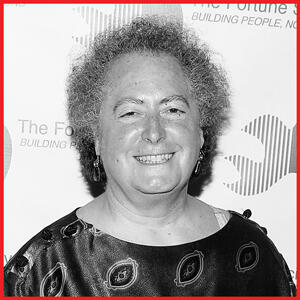A bill that would have prevented landlords from running criminal background checks on prospective tenants died in the year’s final City Council session after a landlord group’s 11th-hour opposition effort.
Tenant advocates said the Rent Stabilization Association’s counter-campaign, in which owners and tenants urged lawmakers to reject the measure, relied on scare tactics and
misconstrued the bill’s likely impact.
After reports yesterday that the legislation had lost too much support to pass, RSA president Joseph Strasburg made his way to City Hall Wednesday to make sure the measure stayed dead.
“I’ve seen games played in the past where, last minute, you think it’s over and they pop it in,” Strasburg said. “But it’s clear that there is an overwhelming number of members who would oppose the legislation if it came to a vote.”
Strasburg said the bill would have created a liability for owners and a worry for tenants. He said if a landlord rented to someone with a record who went on to commit a crime in the building, the owners could be vulnerable to lawsuits from tenants.
“They sue the owner because [the owner’s] got insurance,” Strasburg said.
Read more


Tenants, he said, want to know if their neighbor had done time. He used the hypothetical of a hate-crime convict moving into a small building occupied by members of the targeted community.
Criminal background checks are “just one tool” for preventing such a scenario, Strasburg said. But landlords use them with discretion, he said.
“No owner is going to absolutely say ‘no way’ just because someone committed a crime, because that person could have been in jail for marijuana before it became legal,” Strasburg said.
The Fortune Society, a nonprofit that helps formerly incarcerated New Yorkers find housing, campaigned to pass the bill. It called discrimination by property owners against ex-offenders rampant.
“We see blanket discrimination, no matter how long ago it was, no matter the degree of rehabilitation the person has shown, no matter whether a person would have been a good tenant,” Fortune Society CEO JoAnne Page said.
In a 2007 survey of more than 600 landlords, two-thirds said they did not accept applicants with criminal backgrounds.
That is one reason formerly incarcerated people are more likely to be homeless, which in turn makes them more vulnerable to recidivism. That cycle disproportionately affects people of color, who are more likely to be arrested and convicted in the first place.
But people with criminal records aren’t necessarily predisposed to re-offend.
The Fortune Society pointed to a 2006 research paper that found six to seven years after previous offenders’ last arrest, their risk of committing a new crime is nearly the same as that of someone with no record.
“The correlation between incarceration and danger is not very real,” said Page, noting that mass incarceration locks up many people who should not be.
Age is a much better predictor, she said.
“People tend to age out of crime by about 30,” Page said. “If you really want to be in charge of community safety, you might skew rental ability by age.”

The Fortune Society CEO JoAnne Page (Getty)
The Legal Aid Society, a participant in the campaign for the bill, said RSA presented the legislation in “very stark terms.” Legal Aid noted that a CBS segment implied that the bill had been “slipped in in the dead of the night.”
In fact, the bill, titled the Fair Chance for Housing Act, was introduced by Council member Stephen Levin in August 2020. However, it was not clear until recently that it would be called for a vote this month, which did not happen only because it lacked support to pass.
Strasburg called Levin’s attempt to pass the bill an 11th-hour try by a term-limited politician. Levin, along with two-thirds of the Council, leaves office at the end of the year.
Levin did not immediately respond to a request for comment.
The bill could return in 2022, where it could garner support from a fresh cohort of members. Legal Aid Society and the Fortune Society both said they would continue to lobby for it.
Landlords are not writing it off either.
“Nothing is ever dead,” Strasburg said.
